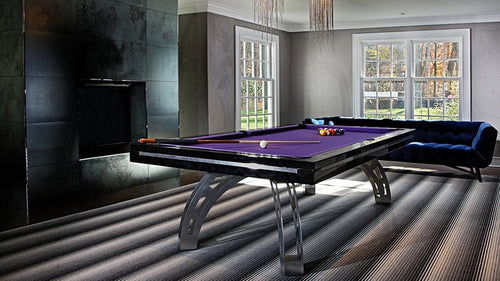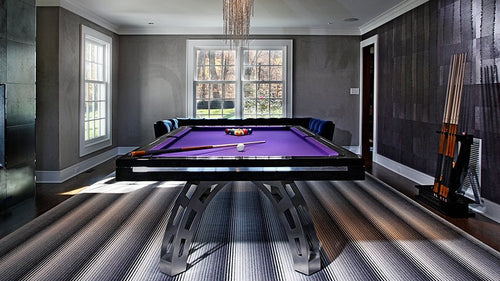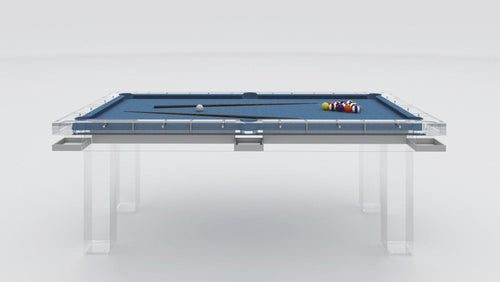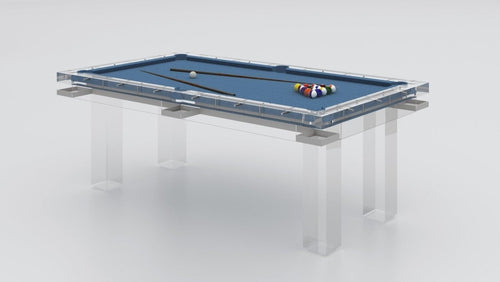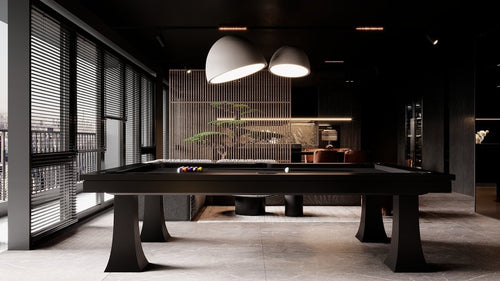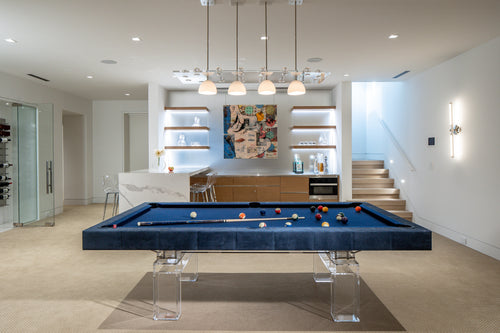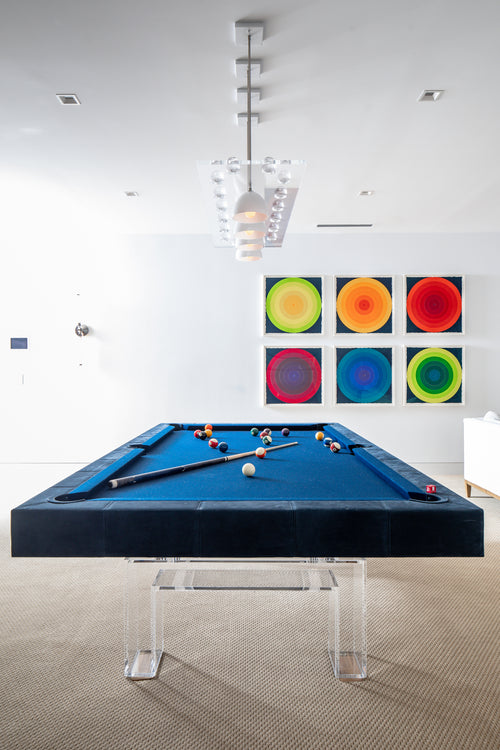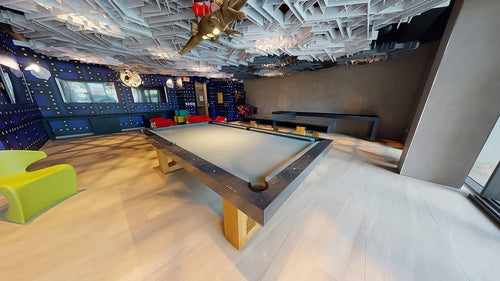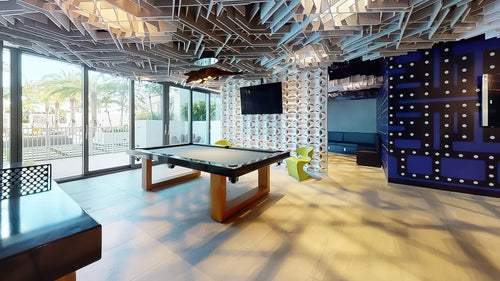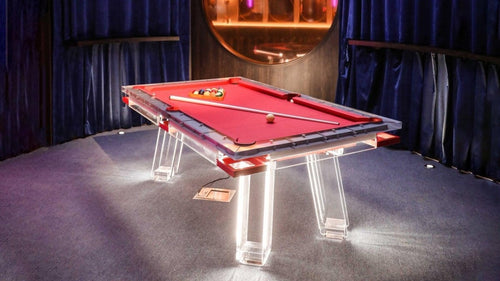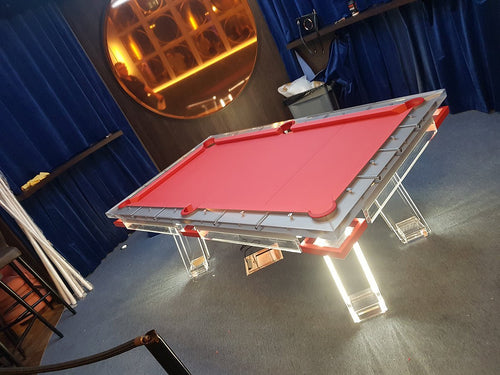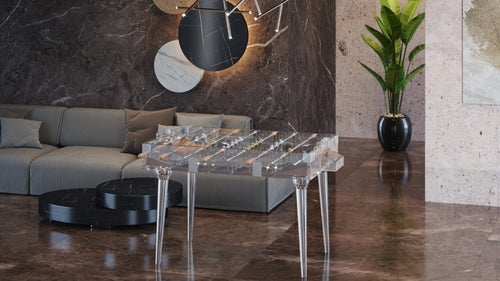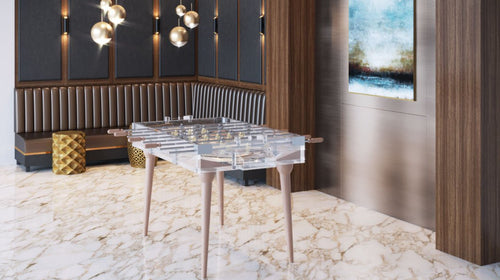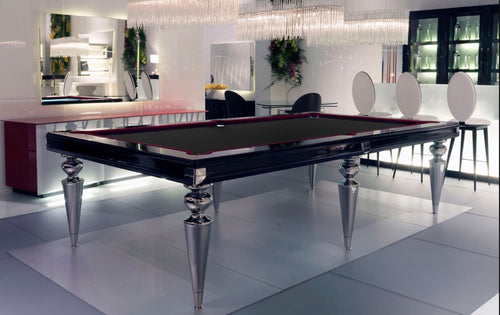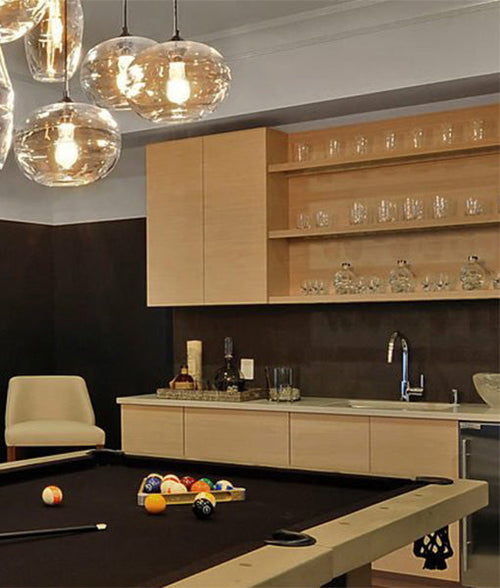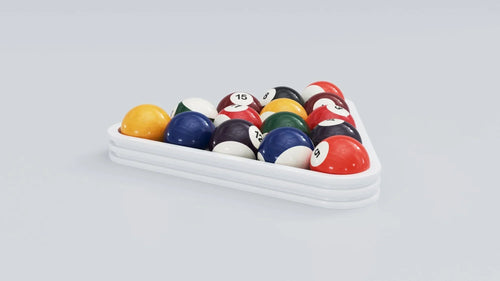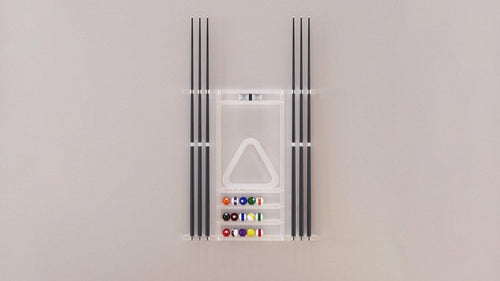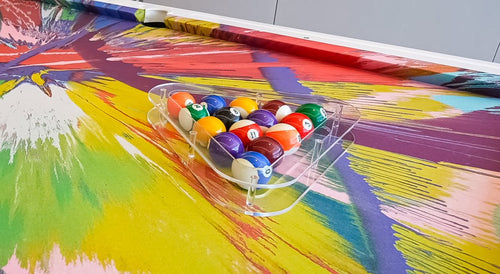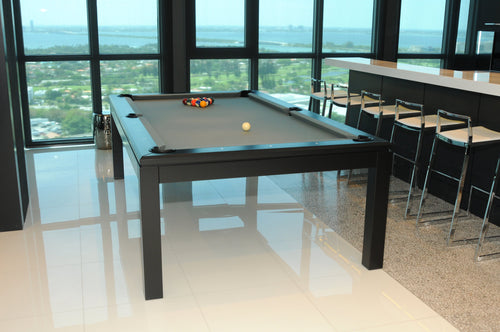Enjoy our modern designs
Pool is a game rich in strategy, skill, and precision. However, several myths persist that can hinder players from reaching their full potential. Let's dive into six common pool myths and uncover the truths every player should know to enhance their game.
Accelerating Through the Cue Ball Improves Your Shot
Many players believe that accelerating the cue stick through the cue ball enhances accuracy and control, thinking that a sudden burst of speed at impact will improve shot performance.
Truth: A smooth and consistent stroke is key to accuracy, not sudden acceleration. Deliberately trying to accelerate through the cue ball can introduce tension and disrupt your natural rhythm, leading to miscues and decreased precision. Instead, focus on a relaxed grip and a fluid, uninterrupted stroke. This approach promotes better cue ball control and improves overall gameplay.
Jump Shots Ruin the Game

Some purists argue that jump shots oversimplify pool, allowing players to escape difficult situations too easily and diminishing the game's strategic depth.
Truth: Jump shots are an advanced skill that requires significant precision, control, and practice. Mastering the jump shot adds a new dimension to your game, enabling you to navigate challenging layouts effectively. Rather than detracting from strategy, jump shots enhance it by providing additional options for offensive and defensive play. Incorporating jump shots into your repertoire can elevate your skill level and enjoyment of the game.
"Bad Rolls" Determine Outcomes

It's common to hear players blame "bad rolls" or luck when things don't go their way, attributing poor positions or unexpected outcomes to factors beyond their control.
Truth: While luck can occasionally influence the game, pool is predominantly a skill-based sport. What are often perceived as bad rolls are usually the result of misjudged angles, improper speed control, or flawed positioning. By honing your technique and decision-making skills, you can minimize the impact of randomness. Acknowledging your role in each shot's outcome is essential for growth and improvement.
Only "Natural Talent" Makes a Great Player
There's a belief that exceptional pool players are born with innate talent, and without this natural ability, it's impossible to reach the top levels of the game.
Truth: While natural aptitude can provide an initial advantage, consistent practice and dedication are the true drivers of success in pool. Many top players, like Shane Van Boening, attribute their achievements to rigorous practice routines rather than inherent talent. Van Boening reportedly practiced up to 10 hours a day to hone his skills. Regardless of your starting point, commitment to regular practice and continuous learning can significantly elevate your game.
Alternate Breaks Offer a Fairer Game than Winner Breaks

Debate persists over whether alternate breaks create a more even playing field compared to winner breaks, with some believing that alternating turns to break ensures fairness.
Truth: Alternate breaks are generally considered fairer, especially in competitive play. This format guarantees each player an equal number of opportunities to break, which can be crucial in games where breaking effectively can lead to winning racks consecutively. In winner breaks, a skilled player can dominate the table for extended periods, potentially limiting the opponent's chances to play. While both formats have their merits, alternate breaks help level the playing field by providing equal opportunities, enhancing the competitive balance of the game.
Twisting the Wrist Adds More Spin (English) to the Ball
Some players think that twisting their wrist during a shot will increase the amount of sidespin, or English, applied to the cue ball.
Truth: Twisting your wrist introduces unnecessary variables and reduces control and accuracy. The proper way to apply spin is through precise cue tip placement on the cue ball and maintaining a straight, smooth stroke. Consistency in your technique is crucial for effectively applying English without compromising your aim. Focus on developing a reliable stroke and understanding how cue ball contact points affect spin to improve your ability to use English effectively.
Ready to Elevate Your Pool Experience?
Whether you're looking to refine your skills or considering a custom-built pool table to enhance your game room, we're here to assist you. At PoolTablePortfolio, we offer expert advice, high-quality equipment, and bespoke pool tables tailored to your style and needs.
Contact us at 888.617.7665 or email sales@pooltableportfolio.com for more information. Let's take your game to the next level!



